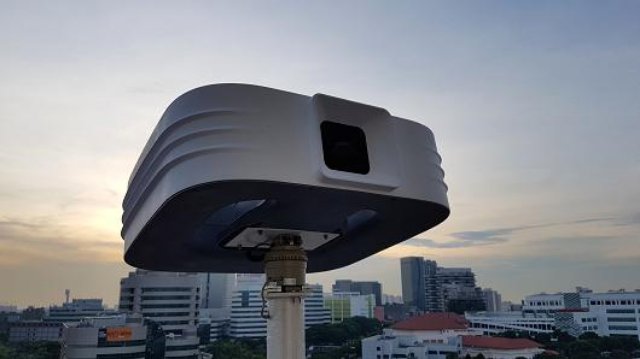The newly launched SkyDroner can detect a drone entering its airspace.The camera will notify security personnel when an unmanned aerial vehicle gets too close, and even claims it can take control of the drone to ensure a safe landing.
The development of unmanned aerial vehicle technology has made areas and buildings vulnerable to drones where bad actors can either attempt to gain information or attempt to cause harm, which is why the anti-drone system is needed, according to its founder Robyn Tay.
“The increase in recreational drone activities in the past two years has sparked concern of drone invasion in the airspace,” Tay told CNBC.
Tay has spent the past 15 years with Teleradio, a Singaporean company that created SkyDroner, and provides its clients in Asia Pacific and the Middle East with covert surveillance systems.
Its client roster includes the Singapore Special Operation Units.

SkyDroner, which costs between $50,000 to $80,000 per camera, is intended to be used by police departments, defense departments, airports, prisons, and operators of nuclear, water and power plants.
The founders say it could be used for major events as well. Tay says many clients are hoping to combat the effect of unwanted drones.
“Authorities are seeking to fully understand the rapid developmental direction of this technology, the privacy and safety of public is still at risk,” Tay said.
U.S. Federal Aviation Authority (FAA) recently enacted new regulation, making it easier for drones to take flight.
According to Dr. Michael Braasch, a professor of electrical engineering at Ohio University and an expert on drone technologies, the regulations come at a time public opinion is changing over drones.
“The privacy concerns are not nearly as big as they were a few years ago when the general public associated the word ‘drone’ with ‘spy plane,” he said.
The shift in sentiment has corresponded with an increase in usage of drones from real estate listings to agriculture.
Professor Braash thinks the clash between drone operators will only grow in intensity, before it is ultimately litigated in courts.
“Unregulated hobbyists hold the potential for harm,” he said. “Most are, of course, conscientious, but it only takes a few bad actors to cause a lot of trouble.”
Sources: CNBC, YouTube
